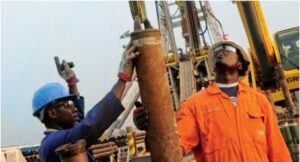“Our industry will benefit as well. When the oil and gas industry is successful in promoting local content and local participation, the industry also benefits from reduced costs, reduced taxes and import logistics and from being closer to our suppliers. This is a true win-win scenario and a clear example of creating shared value,” he said.
Mr Mould said this when he presented a paper on: “Creating shared value: A force to drive competitive advantage and national development” at Accra Academy’s 85th Anniversary and Founders’ Day Lecture in Accra.
He said experience from other oil-producing countries showed that meeting industry needs from local sources was difficult, and that like many countries in similar stages of socio-economic development, “we are faced with limited capital, skills and, indeed, local fronting”.
“Investment requirements are huge in the sector, risks are high, requisite skill sets are sophisticated. So there is generally lack of local capacity to meaningfully participate in the early years. Yet the industry is expected to turn these challenges into opportunities. That’s why businesses are created, in the first place, to solve society’s problems at a profit,” he said.
Ghana, he said, had, however, made significant progress on local content, six years into oil production, saying the data referred to earlier confirmed that.
The GNPC’s overarching strategic goal, he said, was to become a stand-alone operator by 2019 and a world-class operator by 2027.
He said at the core of the strategy was its commitment to catalyse local content development in Ghana.
“This is because GNPC recognises that to achieve our corporate strategic goal, we need to create an ecosystem that nurtures Ghanaian businesses to thrive along with us locally and support our internationalisation ambitions at the right time.
“We, therefore, actively support local Ghanaian companies in their bid to win contracts in the oil and gas sector. Also, through the Enterprises Development Centre (EDC), the corporation is working with other stakeholders in the industry to enhance opportunities for Ghanaian small and medium-scale enterprises (SMEs) in the oil and gas sector.
Mr Mould said the founding members of Accra Academy sought to provide a solution for a national problem in education, while at the same time building a thriving business, thereby creating shared value in education.
“This is the value they bequeathed to us and that should guide us build and sustain competitive businesses in a better society,” he said.
The Chief Executive Officer of UniBank Ghana, Mr Felix Nyarko-Pong, paid glowing tribute to the founding fathers of the school.
Source:http://www.graphic.com.gh/business/business-news/oil-gas-sector-creates-over-5-000-jobs.html




